ICCRE 2025 Invited Speakers
Prof. Chiharu Ishii
Hosei University, Japan
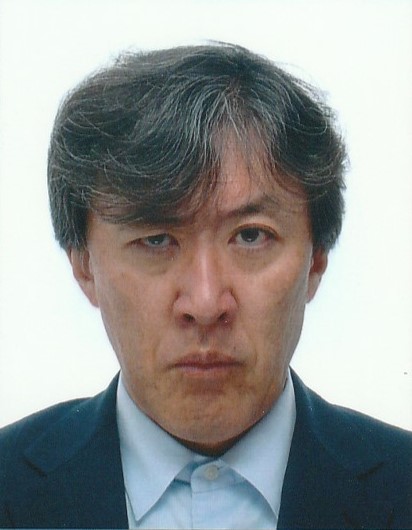
Biography: Chiharu Ishii received his PhD in Mechanical Engineering from Sophia University, Japan in 1997. He worked at Ashikaga Institute of Technology between 1997 and 2002, at Kogakuin University between 2002 and 2009, and at Shibaura Institute of Technology between 2009 and 2010. He has been working at Hosei University since 2010, and currently working as a Professor with the Department of Mechanical Engineering, Faculty of Science and Engineering at Hosei University. Dr. Chiharu Ishii has received several awards such as The Best Paper Award in the area of Tactile and Haptic Interfaces at the 4th International Conference on Human System Interaction (IEEE HSI 2011); Best Paper Award at the 1st International Conference on Computer Science, Electronics and Instrumentation (ICCSE 2012); Best Presentation Award at the International Conference on Intelligent Mechatronics and Automation (ICIMA 2013); Excellent Oral Presentation Award at the 4th International Conference on Soft Computing & Machine Intelligence (ISCMI 2017); 3rd Prize, Excellent Paper Award at the 2021 IEEE 3rd Global Conference on Life Sciences and Technologies (LifeTech 2021). He is currently a member of IEEE, SICE, JSME, RSJ, IEEJ and JSCAS. His research interests are in medical robotics and assistive technology.
Title of Speech: Study on Underwater Use Power Assist Suit
Abstract: In this talk, an exoskeleton, in other words, power assist suit for underwater use is discussed. When constructing the foundation of a breakwater, the foundation stones that have been dropped into the sea are leveled manually by divers. This work gives diver’s body a heavy strain. Therefore, a power assist suit for elbow joint that can be used underwater was developed in our laboratory to reduce the burden on the diver’s arm. In order to verify an effectiveness of the developed power assist suit, experiments of lifting and lowering the heavy object were carried out, and surface electromyogram (SEMG) of the biceps brachii muscle was measured to evaluate muscle activity. As a result, the muscle activity in case of wearing the assist suit was smaller than that of not wearing the assist suit. Thus, effectiveness of the developed power assist suit for underwater work was verified.
Prof. Naoyuki Kubota
Tokyo Metropolitan University, Japan
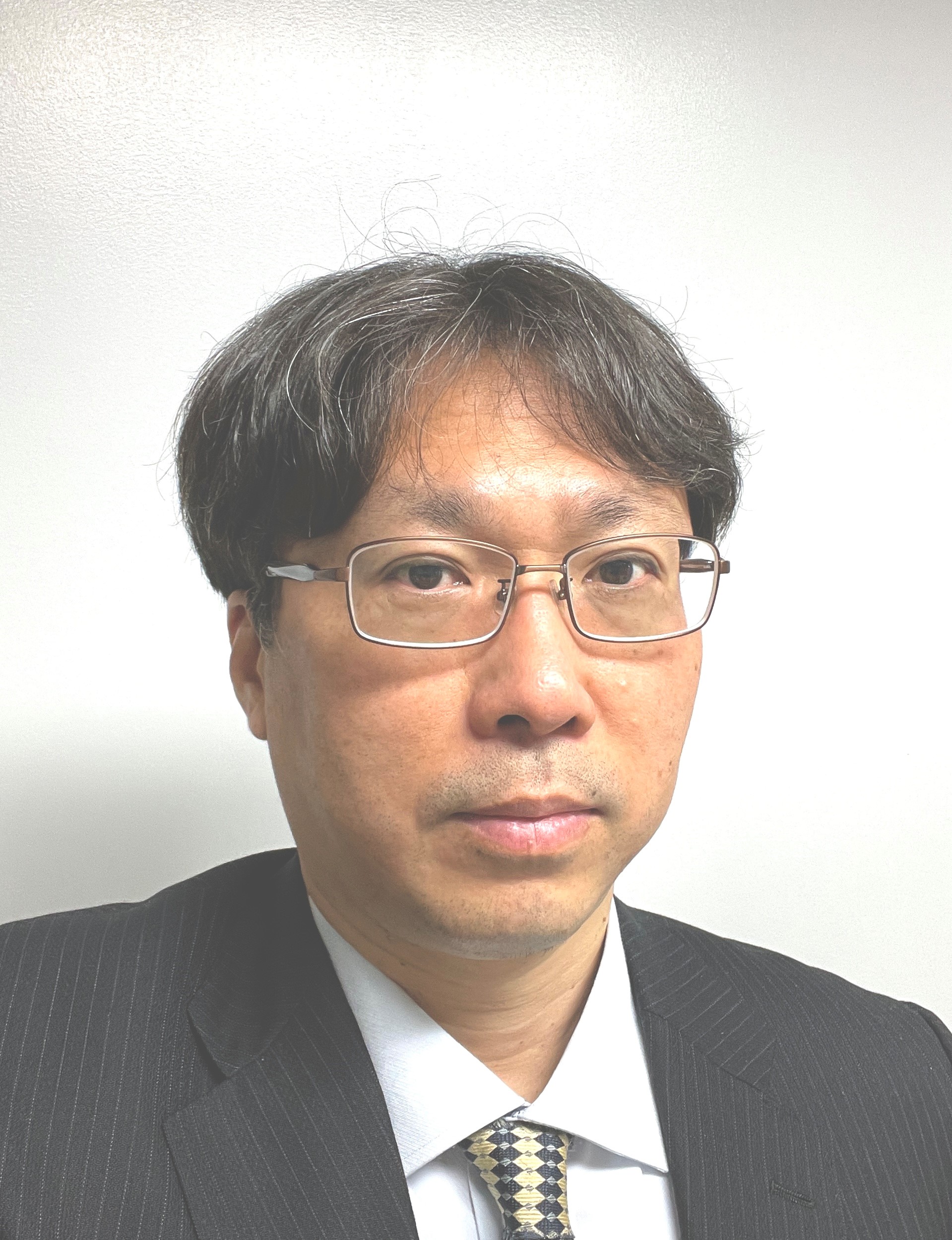
Biography: Naoyuki Kubota is currently a Professor in the Department of Mechanical Systems Engineering, the Graduate School of Systems Design, and Director of Community-centric Systems Research Center, Tokyo Metropolitan University, Japan. He is the representative director of Tokyo Biomarker Innovation Research Association, Japan (TOBIRA). He received a doctoral degree from Nagoya University, Japan, in 1997. He was a Visiting Professor at University of Portsmouth, UK and Seoul National University, South Korea, and others. His current interests are in the fields of cyber-physical-social systems, Healthcare as a Service (HaaS), robot partners, and Computational Intelligence. He has published more than 500 refereed journal and conference papers in the above research fields. He was an associate editor of the IEEE Transactions on Fuzzy Systems from 1999 to 2010, the IEEE Computational Intelligence Society, Intelligent Systems Applications Technical Committee, Robotics Task Force Chair from 2007 to 2014, IEEE Systems, Man, and Cybernetics Society, Japan Chapter Chair from 2018 to 2021, IEEE Transactions on Affective Computing Steering Committee Member since 2019, and others.
Title of Speech: Topological Intelligence for Mobility Support Robots
Abstract: Recently, various types of mobility support robots (MSR) have been developed until now. MSR The research on MSR is related with Mobility as a Service (MaaS) and Robotics (or robot) as a Service (RaaS) to realize large scale of service-oriented optimization based on multi-scale simulations. Thanks to the rapid progress of sensing technology, network technology, and machine learning technology, we can realize real time measurement of people, moving objects, and dynamic environments in a wide area. In order to conduct multiscale and multiphysics simulations on a real-world phenomenon, we should extract and use topological features and structures from given or measured big data. Therefore, we proposed the concept of topological twin. The aim of topological twin is to (1) extract topological structures hidden implicitly in the real world, (2) reproduce them explicitly in the cyber world, and (3) simulate and analyze phenomena of the real world in the cyber world. While we have to deal with the physical dynamics in the microscopic level, we have to deal with spatiotemporal qualitative relationships between objects, people, culture, expand knowledge in the macroscopic level. Furthermore, we need a mesoscopic integration method connecting microscopic and macroscopic topological features. Thus, the topological twin plays the important role in extracting and connecting structures hidden in real world from the mutliscopic point of view. Furthermore, we need a multiscopic approach to deal with inference, learning, search, and prediction based on topological and graphical data as the methodology of topological intelligence. In this talk, first, we introduce the concept of multiscopic topological twin. Next, I explain various types of topological clustering methods and graph-based methods related with topological intelligence. One of them is Growing Neural Gas (GNG), and we have proposed multi-layer GNG (ML-GNG) to reduce the computational cost of original GNG. Next, we explain how to apply ML-GNG for navigation tasks of MSR, and show several experimental results. Finally, we discuss the applicability and future direction of multiscopic topological intelligence.
Prof. Juha Plosila
University of Turku (UTU), Finland

Biography: Juha Plosila is a Professor at the Department of Computing, University of Turku (UTU), Finland, leading there the Robotics and Autonomous Systems Unit (RAS) and a research group called the Autonomous Systems Laboratory (ASL). At the European Institute of Innovation & Technology EIT Digital, he has been heading a European double-degree Master’s Program in Embedded Systems since 2012. He received a Ph.D. degree in Electronics and Communication Technology from UTU in 1999 and has more than 370 peer-reviewed conference and journal publications in various subfields of computer engineering. His research group is currently devising new methods to increase the intelligence and autonomy of robotic systems, with a particular focus on developing multi-objective optimization approaches for self-aware robots (and swarms of robots) while taking into account various constraints in both short-term and long-term scenarios.
Title of Speech: Towards Effective Resource Management in Robotics: Strategies for AI Integration
Abstract: Resource management in robotics involves the joint optimization of a robot's internal units, enabling them to collaboratively achieve desired goals. Knowledge embodiment within a robot is significantly constrained by resource limitations. Effective robotic operation requires real-time cooperation between various control agents, such as those responsible for perception, navigation, collision avoidance, dependability, and mechanical control. These agents work in concert with middleware software modules that manage computing and battery resources. Achieving optimal resource utilization necessitates a holistic approach to the runtime orchestration of these diverse units. This presentation will examine the challenges in creating a resource management process and propose future AI solutions for holistic knowledge integration and reasoning within resource-constrained robotic systems.
Assoc. Prof. Weiwei Wan
Osaka University, Japan
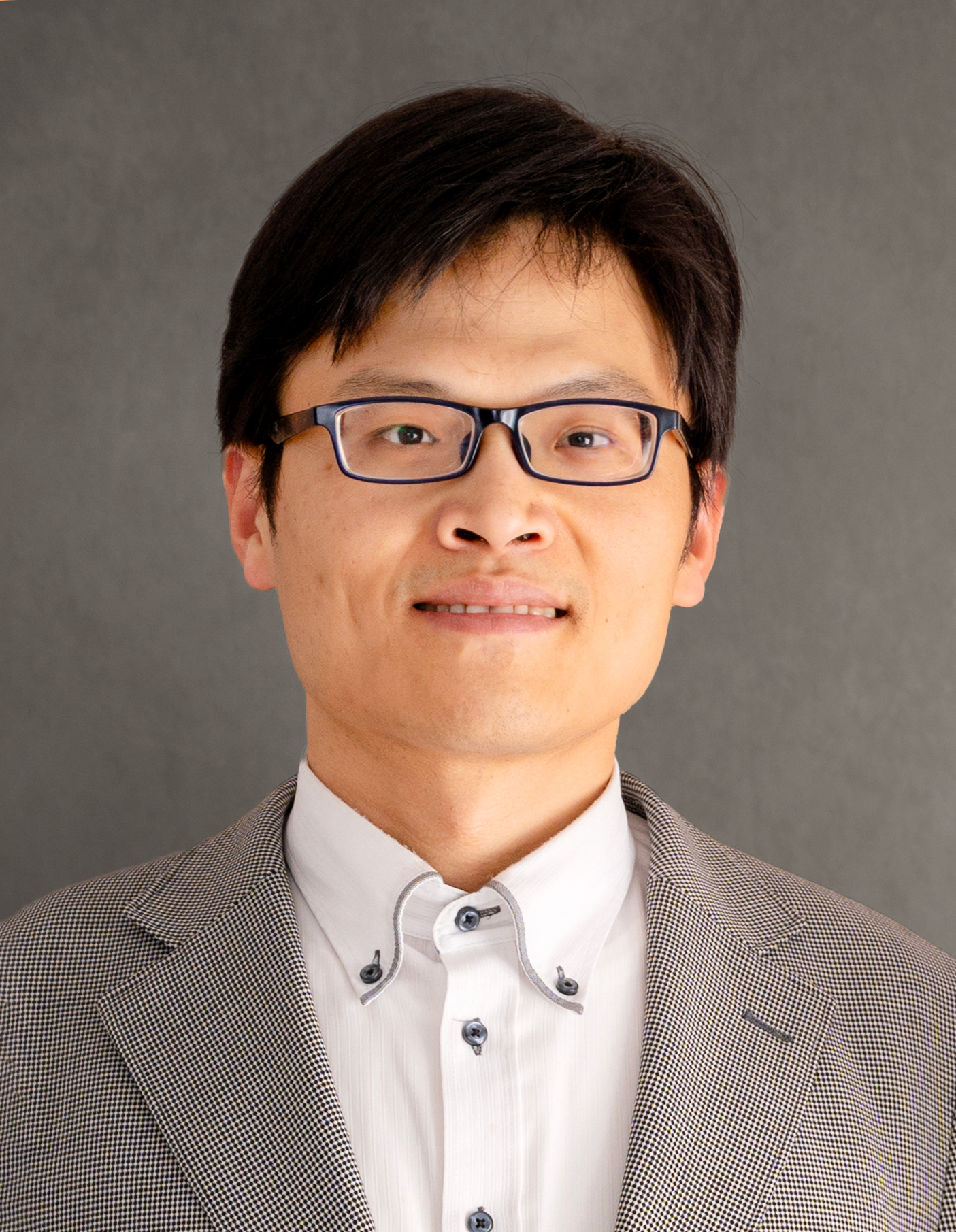
Biography: Weiwei Wan is an associate professor working at the School of Engineering Science, Osaka University, Japan. He is an IEEE senior member, having affiliations with the IEEE Robotics and Automation Society, and the IEEE System, Man, and Cybernetics Society. He is also a member of RSJ (the Robotics Society of Japan) and JSME (Japan Society of Mechanical Engineers). Weiwei Wan's major interest is smart manufacturing using single or multiple robotic manipulators: Developing and deploying grasping planning, motion planning, and other low level and high level task planning algorithms for next-generation factories. He is also studying visual perception, force control, and learning approaches to make up for the inherent shortages of planning algorithms.
Title of Speech: Planning and learning in robotic manipulation
Abstract: Autonomous motion generation for robotic arms and its application in real-world production scenarios is currently a highly popular research topic. In this talk, I will introduce the fundamental concepts and workflow for the autonomous motion generation of robotic arms, along with a series of practical case studies developed by our group based on this approach, highlighting key challenges and solutions. Additionally, I will discuss the impact of AI on traditional methods, analyze the advantages and disadvantages of AI, and explore how AI can be integrated to develop more practical and robust systems.
Assoc. Prof. Sajid Nisar
Kyoto University of Advanced Science, Japan
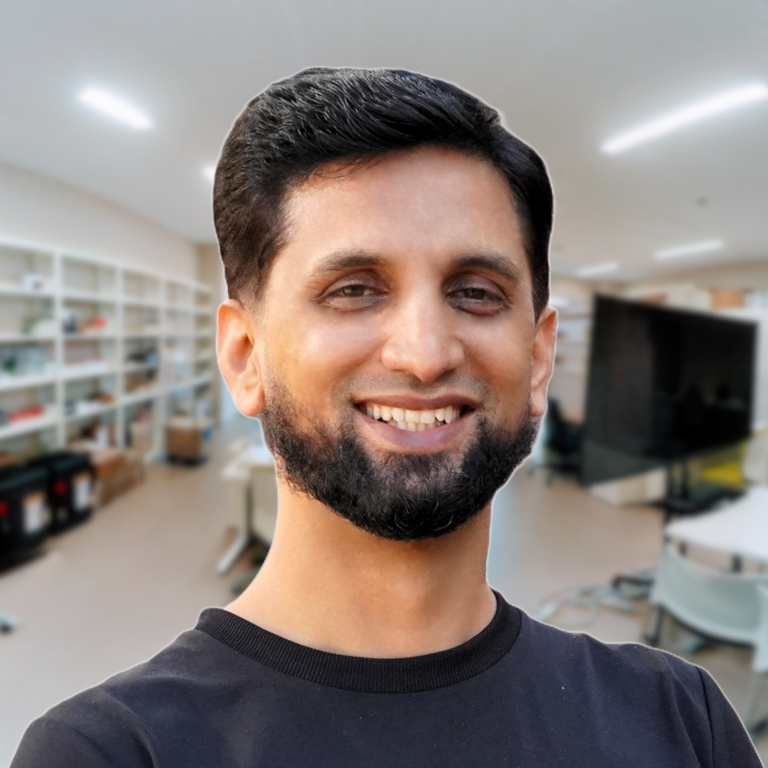
Biography: Dr. Sajid Nisar is an Associate Professor at the Department of Mechanical and Electrical Systems Engineering, Graduate School of Engineering, Kyoto University of Advanced Science (KUAS), Japan, and the Principal Investigator (PI) of the "Novel Intelligent Systems and Advanced Robotics (NISAR) Laboratory". His research focuses on human-centered robotics, with expertise in medical robots, wearable robots, soft robotics, and AI-powered human-assistance systems. Dr. Nisar's work bridges fundamental research and practical applications, aiming to develop innovative, user-friendly, and safer robotic systems. Dr. Nisar earned his MS and PhD in Mechanical Engineering from Kyoto University as a Japanese Govt. MEXT Scholar and Japan Society of Promotion for Science’s (JSPS) Doctoral Fellow, with his research focusing on design of surgical robot manipulators and wearable kinesthetic haptics for medical robot teleoperation and VR. He was also a Visiting Scholar at Stanford University's Mechanical Engineering Department, where he contributed to the development of advanced wearable haptic devices. He has led several high-impact research projects funded by major science agencies, including the Japan Society for the Promotion of Science (JSPS), the Japan Agency for Medical Research and Development (AMED), the New York Academy of Sciences, and the National Academy of Medicine, USA. He has also collaborated with leading industry partners in and outside Japan on development and application of cutting-edge robotic systems. Recognized with prestigious awards such as the IEEE WHC Best Associate Editor Award, the IEEE-RSJ Best Paper Award, the IEEE-RSJ Young Scientist Award, and the KUAS Best Researcher Award, Dr. Nisar has been serving as an Associate Editor for IEEE/RSJ IROS, IEEE ICRA, and leading robotics journals. He is committed to advancing interdisciplinary research on human-centered robotics and mentoring future leaders in robotics and automation.
Title of Speech: Designing Human-Centered Robots for Real-World Applications
Abstract: I will share our recent progress in developing next-generation robotic systems designed for human-centered applications. Our work spans medical robotics, wearable technologies, soft robotics, and AI-assistance systems—united by a common goal: to place human needs, capabilities, and environments at the forefront of robotic design. Human-centered robots, as we define them, are systems that are either operated by humans, work in physical contact with the body, or operate safely and intuitively in close proximity to people. To this end, we pursue modular, scalable innovations in bilateral teleoperation, haptic feedback, soft actuation, wearable exoskeletons, empowered with AI.
Key highlights include:
Soft robotic actuators and grippers tailored for delicate and adaptive interactions
AI-driven robotic grasping with zero-shot learning
Adaptive mobility support systems for driving and wheelchair navigation
Haptic-enabled teleoperation platforms for safety-critical tasks
In addition to sharing project outcomes, we will address key challenges in real-time control, adaptability to unstructured environments, and the creation of user-centric interfaces. The talk concludes with a forward-looking perspective on how soft robotics and embodied AI together with human-centric designs will redefine the boundaries of human-robot collaboration in the coming decade.
Assoc. Prof. Chen Lv
Nanyang Technological University, Singapore
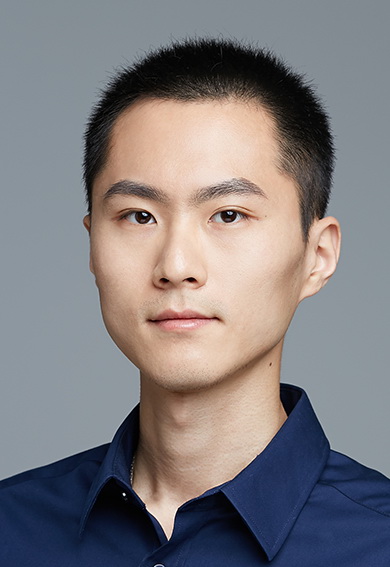
Biography: Chen Lvis an Associate Professor at School of Mechanical and AerospaceEngineering, and the Cluster Director in Future Mobility Solutions, NanyangTechnological University, Singapore. He joined NTU and founded the AutomatedDriving and Human-Machine System (AutoMan) Research Lab since June 2018. Hisresearch focuses on intelligent vehicles, autonomous driving, and human-machinesystems, where he has published 4 books, over 200 papers, and obtained 12granted patents. He serves as Senior/Associate Editor for IEEE T-ITS, IEEE TVT,IEEE T-IV, etc. He received many awards and honors, selectively including NanyangResearch Award (Young Investigator), Singapore National Academy of Science YoungScientist Awards Finalist, SAE Ralph R. Teetor Educational Award, Champions of WaymoOpen Dataset Challenges at CVPR (2021, 2024), Innovation Prize at CVPR nuPlanPlanning Challenge (2023), Most Innovative Award of NeurIPS Driving SMARTSCompetition (2022), ITSC 2023 Best Paper Runner-Up Award, IEEE CIS-RAM 2024 BestPaper Award, etc.
Title of Speech: Human-like Autonomy for Smart Mobility and Robotics
Abstract: The long-term goal of artificial intelligence (AI) systems is to make them learn, think and act smartly like human beings. As a typical application of AI, autonomous vehicles (AVs) become one of the most potential and ultimate ambitions in the smart mobilities. They primarily designed to replace human drivers during driving in order to enhance the performance and avoid the possible fatalities. In the near future, AVs are believed to share public roads with human-driven vehicles, which requires AVs to be smart and able to behave like human drivers, being reasonable and predictable to other road users. However, due to their limited smartness, current AVs are still lack of robust situation understanding, interaction prediction and human-like decision-making abilities when interacting with others, particularly in complex and emergency situations. Therefore, human-machine hybrid intelligence, as well as human-machine collaboration, are of great importance to ensure the safety and further improve the smartness of mobility systems, during long-term development and large-scale deployment of AVs. In this talk, the recent studies in human-like autonomy and human-machine hybrid intelligence for future mobility will be presented. First, a data-driven prediction and decision-making framework for human-like autonomous driving will be introduced. Next, a novel human-machine collaboration framework with bi-directional performance augmentation ability developed for automated vehicles and robotics will be presented in detail.
Dr. Christian Di Natali
Istituto Italiano di Tecnologia (IIT), Italy

Biography: Christian Di Natali is a Researcher and Principal Investigator in the Exoskeletons Group (XoLab) at the Department of Advanced Robotics (ADVR), Istituto Italiano di Tecnologia (IIT).
He joined IIT in 2017, bringing valuable industrial experience as a Technical Manager, where he led the design of autonomous machines for manufacturing wound electric motors. A young entrepreneur blending creativity and innovation, recently, he founded two startups in wearable technology, delivering cutting-edge, real-world solutions.
His research focuses on human-centric technologies, including wearable robots, soft robotics, AI-powered activity recognition, and advanced wearable technologies. His work bridges fundamental research and practical applications across industrial automation, rehabilitation, and space exploration, aiming to develop translational innovations that enhance health, safety, and user experience.
Dr. Di Natali is deeply involved in the design, development, control, and assessment of these technologies, ensuring their effectiveness through rigorous laboratory and real-world evaluations. He has authored nearly 100 publications, secured 12 granted patents, and received 10 prestigious awards for his scientific contributions and innovative designs.
Title of Speech: Tailoring Success: Challenges and Human-Centered Insights in Wearable Robotics
Abstract: Musculoskeletal disorders represent a critical challenge in modern industry, generating enormous economic impact across multiple societal levels. While industrial exoskeletons have emerged as a promising solution — with various technologies demonstrating remarkable potential benefits for workers — their journey from laboratory to widespread workplace adoption could face significant obstacles.
Like tailored clothing, exoskeletons require personalized customization across multiple dimensions. Beyond basic anthropometric fit, successful implementation demands alignment with specific applications, tasks, and industrial environments. The human-centered design approach offers a verification framework that, when properly applied, substantially enhances both performance and user acceptance.
Creating effective exoskeleton solutions requires addressing a complex spectrum of engineering and design considerations. This exploration examines key efficacy factors that determine success, offering valuable insights for developers based on real-world implementation experience. Understanding these critical elements can bridge the gap between exoskeleton potential and practical workplace adoption.

